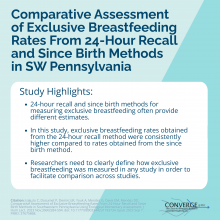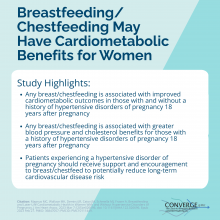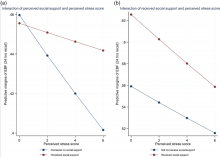Congratulations to Dr. Jill Demirci for receiving the Diversity in Curriculum Award! Dr. Demirci received this award for her curriculum on frontloading lactation with an equity focus to offer undergraduate nursing students a practical and low-pressure learning setting. The course introduces fundamental lactation knowledge, fostering critical thinking and enhancing nursing management skills. The goal is to heighten awareness, comfort, and familiarity among students regarding lactation support for diverse patient groups.
demirci
Six Identified Interpersonal Communication Components of Breast Cancer Care Patient Navigation
Interpersonal communication in breast cancer care patient navigation is understudied. To combat this, Dr. Jill Demirci and her team report an interpretation step of a concept mapping study, where key stakeholders shared their perspectives on six identified interpersonal communication components of breast cancer care patient navigation.
https://pubmed.ncbi.nlm.nih.gov/37947858/
Vaccination Beliefs and Attitudes of Lactating People During the SARS-CoV-2 Pandemic
Despite high uptake of SARS-CoV-2 vaccine, Dr. Jill Demirci and her team found that many participants held concerns about safety and that many reported a lack of direct counseling from providers around lactation. Future research should investigate how variability in provider counseling affects SARS-CoV-2 vaccine uptake in perinatal populations.
Comparative Assessment of Exclusive Breastfeeding Rates From 24-Hour Recall and Since Birth Methods in Southwestern Pennsylvania Using Ecological Momentary Assessment
Drs. Jill Demirci and Dara Mendez's study looked at 24-hour recall assessing exclusive breastfeeding was higher than the since birth rates across all ages and maternal characteristics. The difference between the two methods at 3 months was 25.7% and at 6 months was a 17.2%. Findings highlight the importance of specificity in measuring and reporting exclusive breastfeeding.
Read more about their findings here: https://pubmed.ncbi.nlm.nih.gov/37675868/
Covid-19 Vaccination Beliefs and Attitudes of Lactating People
Dr. Jill Demirci and her team researched Covid-19 vaccine hesitancy of pregnant and recently pregnant people, finding that among this group safety concerns persisted, with many reporting a lack of direct counseling from providers.
Learn more about their findings here: https://pubmed.ncbi.nlm.nih.gov/37009722/
Effect of antenatal milk expression education on lactation outcomes in birthing people
In a recent study, faculty members Dr. Jill Demirci and Dr. Lisa Bodnar provide the first evidence of acceptability and effectiveness of telelactation-delivered antenatal milk expression.
Learn more about their findings here: https://pubmed.ncbi.nlm.nih.gov/36927811/
Breastfeeding/ Chestfeeding May Have Cardiometabolic Benefits for Women
Faculty members Dr. Jill Demirci and Dr. Janet Catov examined whether breastfeeding/chestfeeding duration or exclusivity are associated with long‐term cardiometabolic health, and whether this relationship differs by hypertensive disorders of pregnancy (HDP) status
Read more about their findings here: https://pubmed.ncbi.nlm.nih.gov/36847057/
Happy National Nurses Month!
Happy Nationa Nurses Month! We are highlighting our nursing faculty members Dr. Nancy Niemczyk, Dr. Jill Demirci, Dr. Denise Charron-Prochownik for their amazing work at University of Pittsburgh's School of Nursing and beyond!
Effect of antenatal milk expression education on lactation outcomes
Dr. Jill Demirci conducted a randomized controlled trial evaluating the efficacy of a telelactation-delivered antenatal milk expression (AME) education intervention, providing evidence of acceptability & effectiveness of telelactation-delivered AME.
Read more here: ncbi.nlm.nih.gov/pmc/articles/PMC10019405/
Stress, social support, and racial differences: Dominant drivers of exclusive breastfeeding
Findings by Drs. Dara Mendez, Jill Demirci, and Esa Davis show that:
- Childbearing people who reported higher perceived stress were less likely to breastfeed exclusively
- Perceived social support moderated perceived stress, thereby increasing the likelihood of exclusive breastfeeding
- Received social support did not moderate perceived stress; however, it directly increased the likelihood of exclusive breastfeeding
- Overall, Black childbearing people in our study were less likely to exclusively breastfeed
Pagination
- Page 1
- Next page











